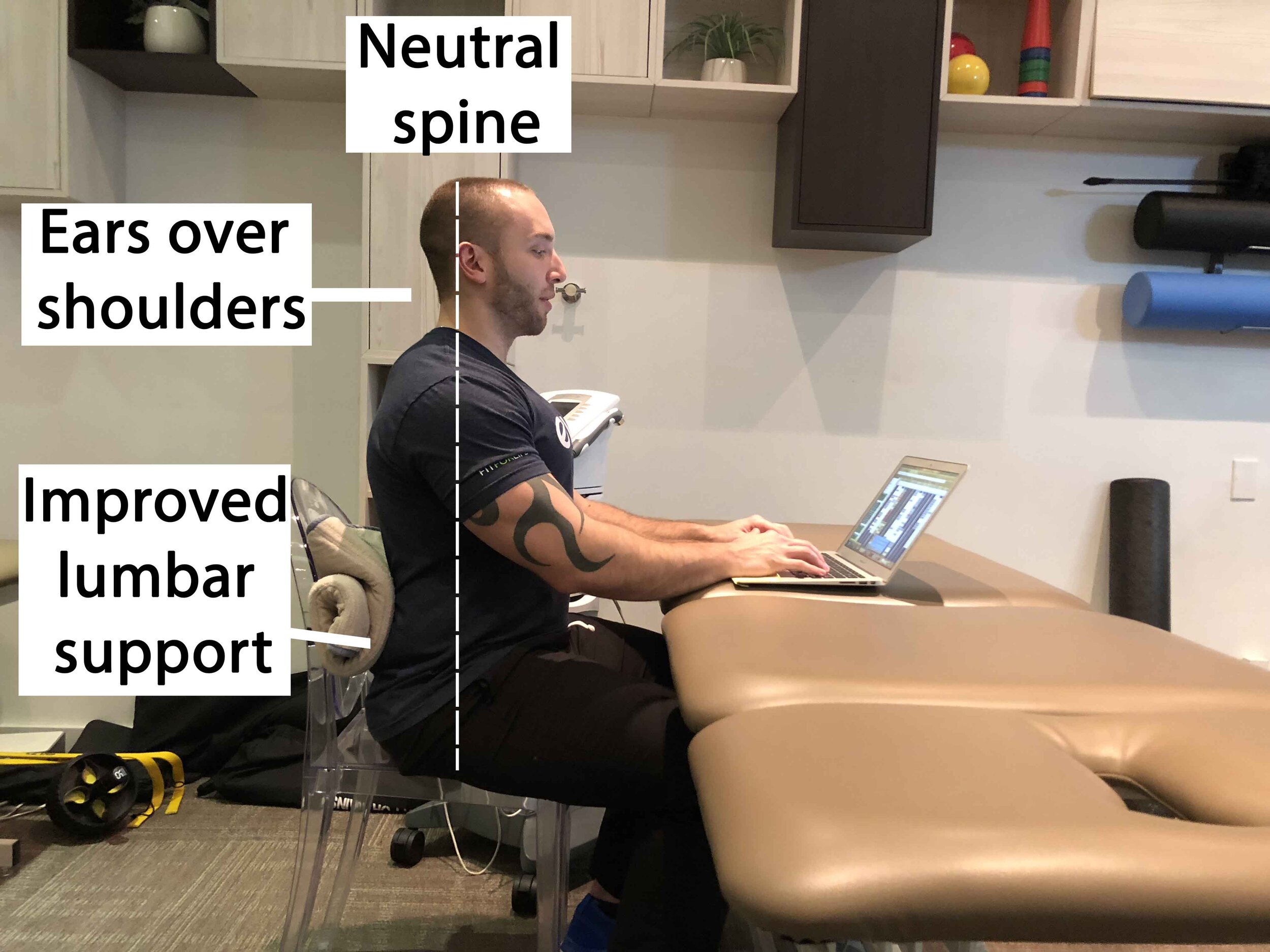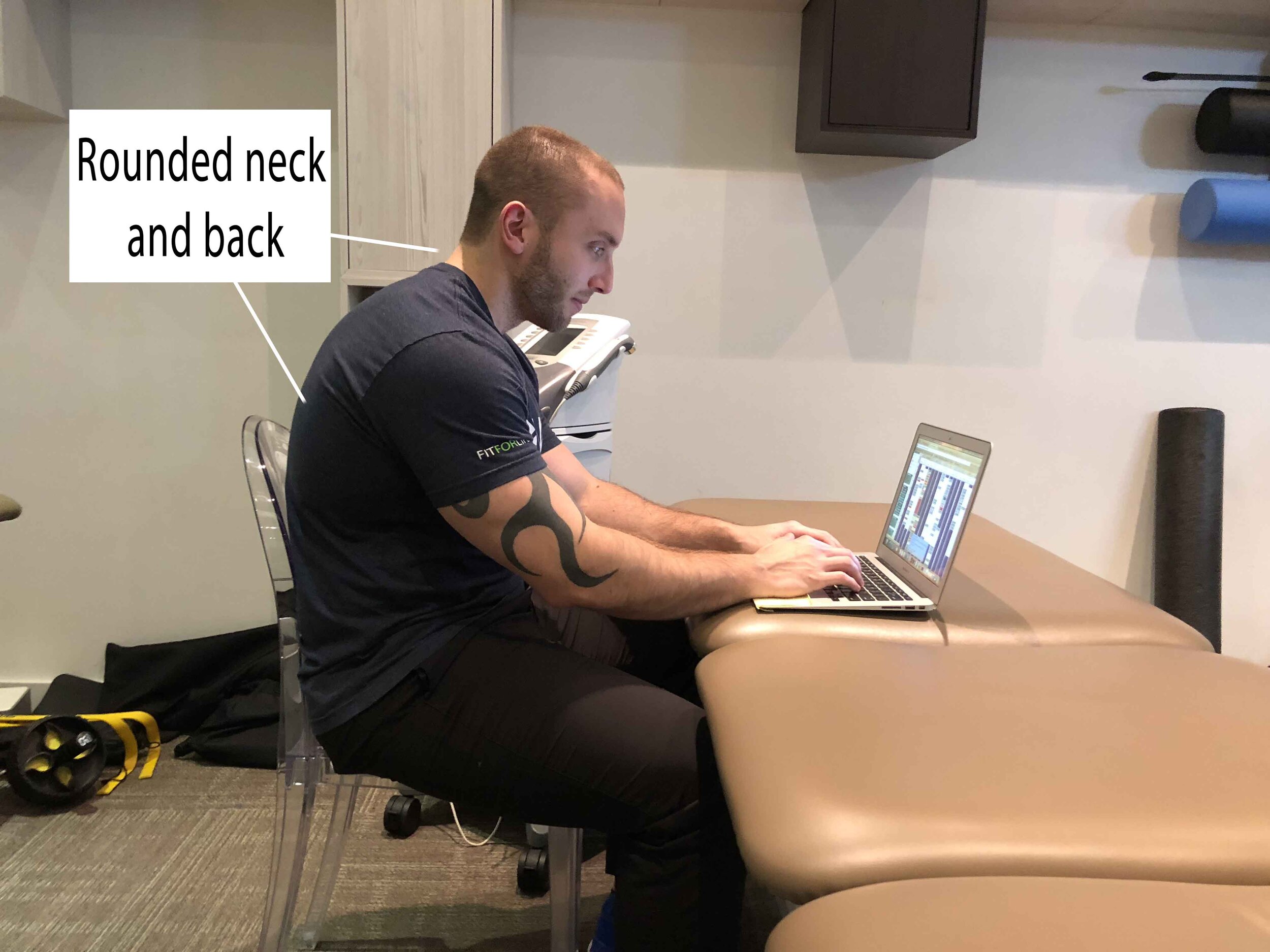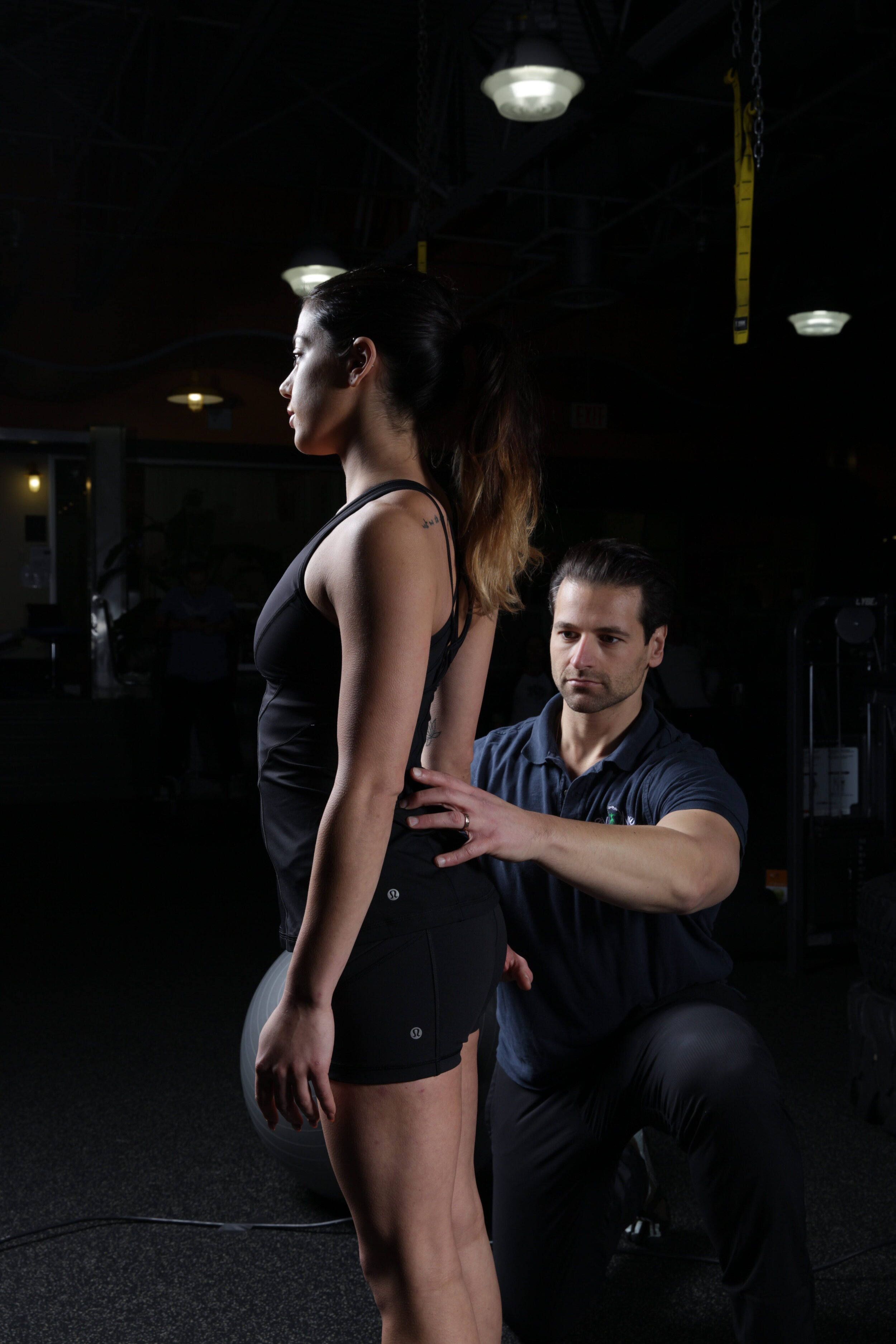Perfect Posture
What is Posture?
Posture is the ability to hold our bodies in an upright position while sitting and standing, working against the pull of gravity. Good posture is when your body parts are in correct alignment. Ligaments and muscles help us maintain a good posture, but occasionally they do get tired which can lead to bad posture. Ultimately, if you continue to slouch and have bad posture, you will more than likely start to feel aches and pains and increase your chances of sustaining an injury.
Why is maintaining good posture important?
Again, good posture is when your body parts are in the most correct alignment. This means in this position, your muscles, ligaments, and other body structures are in the most efficient position, therefore in the least damaging positions. Keeping bones and muscles properly aligned helps prevent our bodies from developing degenerative conditions such as arthritis or chronic pain. It also reduces your risk in acquiring injuries, since we know that our structures are in the optimum alignment. Your risk of muscle strain or overuse conditions is also likely reduced. Lastly, good posture looks... good! And makes you feel good! Research also suggests that sitting or standing up straight has positive psychological effects.
On the other hand, bad or poor posture has its consequences. When we assume bad posture for a long period of time, such as when we slouch in front of a desk or television, we start to develop the lower back aches or neck pains because our bodies are not supposed to be positioned this way. It puts us at risk of muscle strains or ligament sprains. When body structures are not aligned properly, they will usually get tight or overly stretched which results in muscle weakness. Because of the weakness and misalignment, it becomes more challenging to correct the poor posture.
Here are some examples of poor posture that are commonly seen (but not corrected) in the workplace:
Slouching - who doesn’t slouch in front of a desk at work right? When work gets boring and stressful, we would just slump on our chairs with the very bad back support. Get into the habit of sitting up straight, it’s actually proven that you’re much more productive this way. Another good thing to do is take a 10 minute movement break every hour to stretch your muscles and prevent them from tightening up.
Text Neck - we get to see this everywhere now! This is when we look down on our mobile phones for a long period of time and can result in mild or severe neck pain. Text neck can also be seen when we’re lying down with numerous pillows stacked under our head and neck just so we can use our phones comfortably. A way to prevent this posture is to hold your mobile phone up a bit higher so you don’t have to look down as much.
Rounded shoulders - this poor posture can be seen in standing, sitting and even lying down on the bed! It’s when the shoulders are positioned a little more forward that the ear. In correct postural alignment, your shoulder blades should be aligned with your ear. This position places a lot of stress on your upper back and neck muscles. People with this posture often complain of heavy and painful shoulders. A good way to prevent this is to lightly exercise the shoulders throughout the day by rolling them back or doing a couple of shoulder shrugs.
What can I do?
Breaking out of bad posture is quite challenging. It takes time, a lot of effort, and a lot of exercise. But it can be corrected and reversed! Here are the top three stretches that you can do at home that will surely help you loosen up.
Chin tuck - move your chin towards your chest and hold the position for 6 to 10 seconds. This exercise can stretch AND strengthen your neck muscles! It’ll help you regain normal, or close to normal alignment of your neck and shoulders. It’ll also help in preventing any more neck pain.
Wall stretches - This exercise basically helps with rounded shoulders. It opens up the chest and loosens front shoulder muscles. Face a corner of a wall, place your hands up high on the wall forming a letter “V”. Gently flex at the hip with your upper body moving towards the floor. You should feel a good amount of stretch in the chest and shoulder area. Hold this position for 6 to 10 seconds, and repeat 10 times.
Runner’s stretch - This exercise opens up the abdominal and hip areas. It also helps stretch the legs and gluteal muscles. In standing, step one foot forward and flex your knee into a deep lunge. Flex all the way the floor until you feel a good amount of stretch at the hips! Hold it for 6 to 10 seconds, and repeat 10 times. Don’t forget to do the other leg as well!
Remember, poor posture can be corrected, but again, can be quite challenging. It needs practice, determination, and a lot of conscious effort. However, if your poor posture has been an issue for a long while, then you might want to consider the help of a Physical Therapist.
Click here for more information on our general physical therapy services and physical therapy for posture
About Evolve Physical Therapy of Brooklyn
Brooklyn's Premier Physical Therapy Clinics-
There’s physical therapy, there’s training, and then there’s EVOLVE. We use the science of biomechanics merged with fitness to help our patients get better and stay better!
First we evaluate, then we heal, then we strengthen our clients so they can reach their goals, feel better, and live happier lives. We do so by utilizing a range of core techniques and specialized treatments to reduce pain, improve mobility, enhance physical strength and deal with the underlying issues, not just the pain itself.
Multiple Locations!





